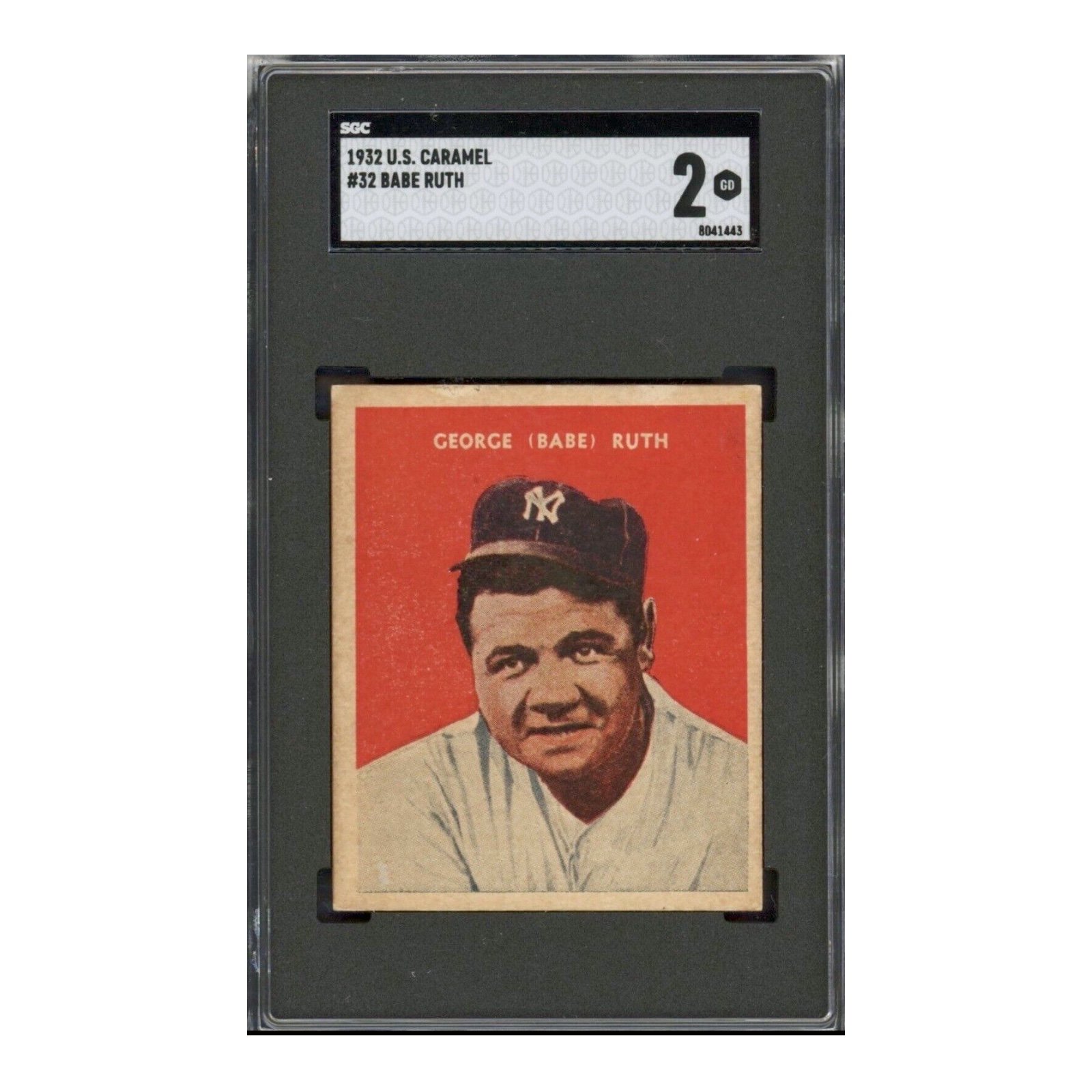Understanding the Factors That Influence the Value of Sports Cards
1932 US Caramel Babe Ruth #32 SGC 2
Introduction to Sports Cards Collecting
Sports card collecting is a hobby that dates back to the late 19th century when tobacco companies first began including baseball cards in cigarette packs. This trend quickly expanded to include cards for a variety of sports, encapsulating baseball, basketball, football, hockey, and more. Over the decades, collecting sports cards has evolved from a simple pastime to a significant investment opportunity, with some cards appreciating to astronomical values. Today, we’ll explore the key factors that influence the value of sports cards, an essential guide for any collector.
1. Rarity
One of the most influential factors in a sports card's value is its rarity. Limited edition cards, especially those with low production numbers, are highly sought after. Pre-WWII cards, for instance, are often rare due to the smaller quantities produced at the time. The scarcity of a card can exponentially increase its market value.
2. Condition
The condition of a sports card is paramount and is typically graded on a scale from poor to gem mint. Cards graded at higher levels (e.g., PSA 10 Gem Mint) by reputable grading services like PSA (Professional Sports Authenticator) or Beckett Grading Services are valued much higher due to their preserved quality and authenticity assurance.
3. Player Popularity and Career Achievements
The athlete depicted on the card greatly affects its value. Cards featuring legendary figures such as Michael Jordan, Babe Ruth, or Tom Brady, who have iconic status and extraordinary achievements, are perennial favorites. Emerging stars and rookie cards can also be highly valuable, especially if the player goes on to have a standout career.
4. Historical Significance
Cards that capture significant moments in sports history or are part of a landmark collection (like the T206 series, which includes the famed Honus Wagner card) hold immense historical value and appeal to both collectors and historians.
5. Market Trends
The sports card market is dynamic, with values fluctuating based on current trends. The resurgence of interest in trading cards, fueled by platforms like eBay and StockX, has seen values soar. Additionally, societal shifts such as the rise of nostalgia or the popularity of specific sports can influence card prices.
6. Autographs and Memorabilia
Cards that include autographs or pieces of memorabilia (such as jersey swatches or bats) generally command higher prices. These cards offer a tangible connection to the athletes, making them exceptionally desirable.
Conclusion: The Investment Perspective and Services
Understanding the factors that affect the value of sports cards can help collectors make informed decisions, potentially turning a hobby into a profitable venture. For those looking to authenticate, appraise, or consult on their sports card investments, David J. Rose II of DJR Authentication in Charleston, SC, offers comprehensive services. These include written appraisals for insurance, estate, and personal matters, autograph authentication, sports and trading card verification, selling options, and more. Visit djrpro.com to schedule an appointment and learn more about how you can enhance your collection's value.

